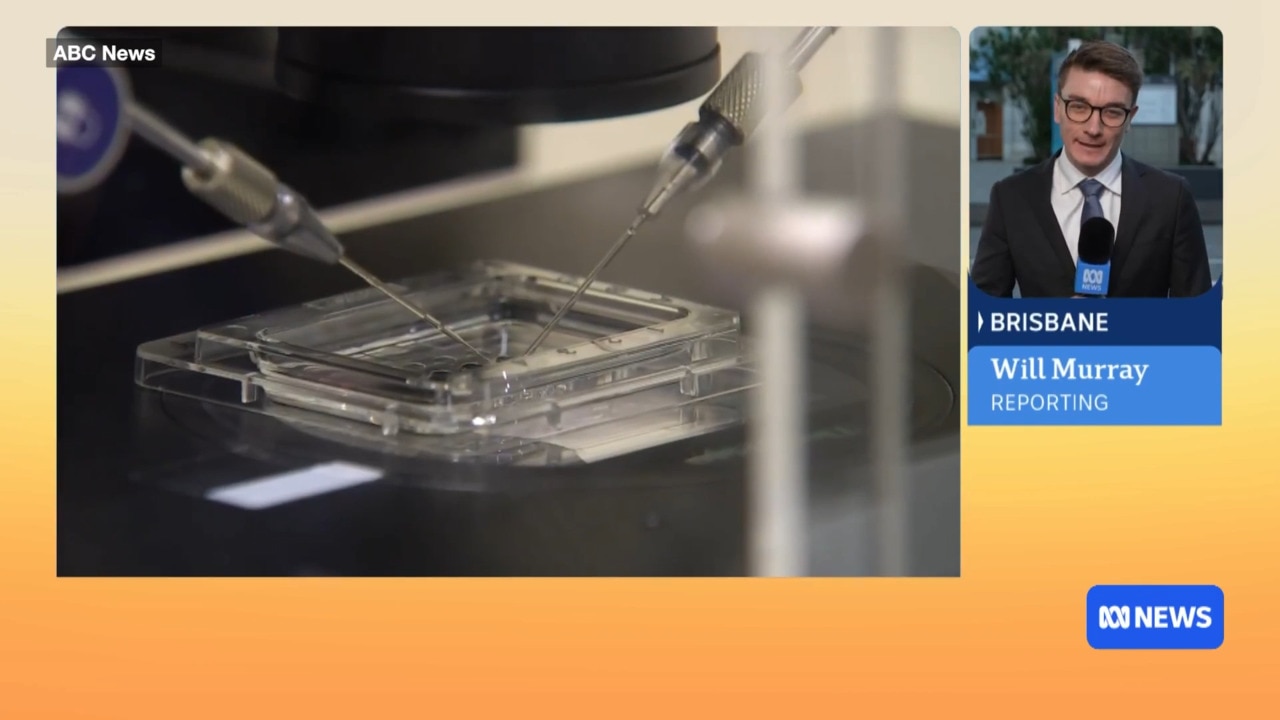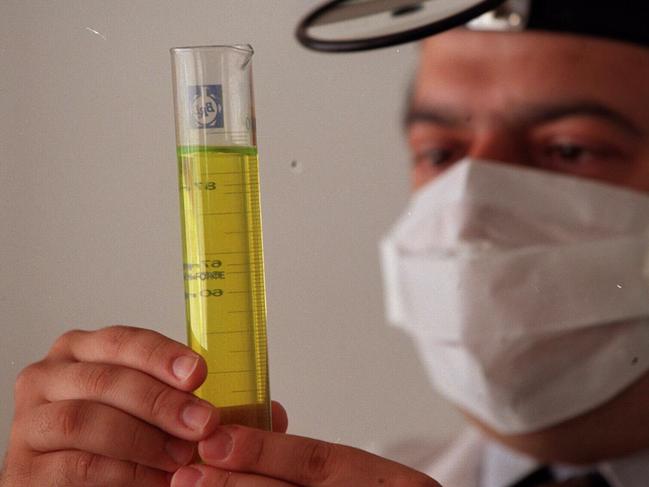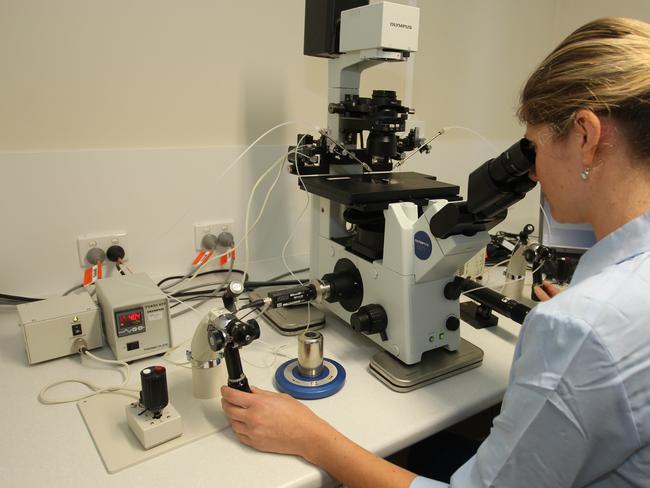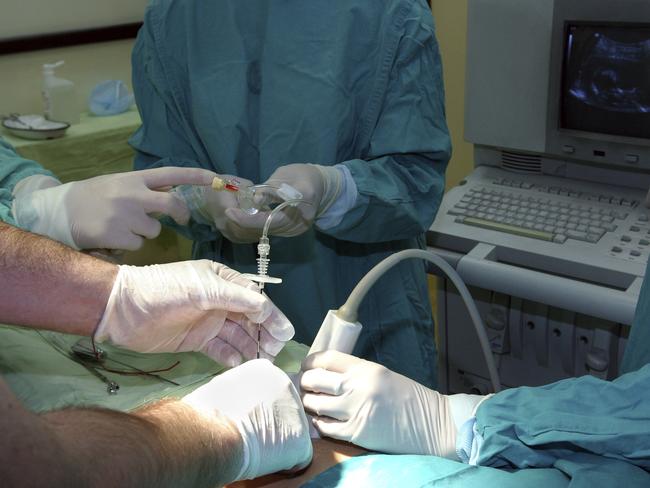Regulators found 172 breaches at IVF clinics. They won’t tell you where
IVF clinics have recorded a surge in “identification and traceability” issues, but the industry body is refusing to reveal the responsible clinics. This is what we know.

Victoria
Don't miss out on the headlines from Victoria. Followed categories will be added to My News.
There has been a shock surge in “identification and traceability issues” at IVF clinics, but the industry body is refusing to reveal the sites responsible.
It comes after the Herald Sun revealed a catastrophic embryo mix-up at Monash IVF’s Brisbane clinic led to a woman being implanted with a stranger’s embryo.
The error was only discovered after the baby had been born.
Experts are calling for more transparency in the financially lucrative sector, but industry body the Fertility Society of Australia and New Zealand has refused to reveal individual audit results.
While state and territory governments are also responsible for regulation, the FSANZ subgroup, the Reproductive Technology Accreditation Committee, awards clinics their license to operate.
The RTAC’s 2023-2024 annual report shows audits uncovered 172 breaches of the code of practice, known as nonconformances or NCR, in Australia – including one “major NCR” – and 78 breaches in New Zealand.

In Australia, the results of hospitals undergoing accreditation are publicly available, but the RTAC reports do not name the individual clinics and data on the type of breaches cannot even be broken down to the national level.
Their latest report shows the number of breaches relating to “identification and traceability” more than doubled in Australia and New Zealand last financial year, but with no detail on the clinics or country, patients have no way of knowing if any Australian clinics contributed to the jump.
In the 2023-24 financial year a staggering 49 – or one in five – of the 248 code of practice breaches recorded across both countries were related to “identification and traceability”, making it the most common breach.
This was up from 22 the year prior, and saw the issue listed as an “area of concern” by the report.
The jump in traceability issues occurred over the same time period that New Zealand clinics recorded significant increases in total breaches, which rose from 15 in the 2023 financial year to 78 in the most recent one.

Australian clinics recorded a much smaller rise – from 164 to 172 – but with the report providing no detail on why New Zealand breaches rose, and whether it was across all or only some categories, Australian patients cannot be sure that New Zealand alone was responsible for the spike in traceability issues.
There was also 35 breaches around reporting adverse events, another 35 related to “quality management systems” and 29 issues with “donor and surrogacy requirements”.
An announcement lodged with the ASX last week shows Monash IVF Brisbane took 5 days to report the initial findings of their investigation into the embryo mix-up to the Queensland regulator.
The Fertility Society of Australia and New Zealand also refused to provide, when asked by the Herald Sun, the results of Monash IVF’s audit, citing the ongoing independent investigation by Monash IVF into the incident.
A spokeswoman defended their decision to conceal clinics’ names in their annual reports, and said they were committed to the “highest standards of quality, safety and privacy within fertility care”.
“Consistent with other non-government accreditation bodies the RTAC does not publicly identify any clinics’ audit details within annual reports, but seeks to provide reassurance to the public by ensuring any nonconformances identified in audits are properly addressed,” she said.
“As stated in the annual reports, all nonconformances identified within RTAC audits have been resolved to an acceptable standard and within reasonable time frames.”
Monash University adjunct senior research fellow Dr Karin Hammarberg said greater transparency was needed and was surely in the “interest of the Federal Government”, who provide significant funding for IVF via Medicare.
“[Australian clinics] have to report adverse events to RTAC, but we as the public don’t know how many of those there were in the year … or for that matter, what they do about it,” she said.

She said the creation of an independent, national government body to collect and publish data on the industry would give patients a voice, promote transparency and help avoid multiple regulatory bodies across different states.
The RTAC has even come under fire in the past for initially giving government regulators redacted audit results.
The Queensland Office of the Health Ombudsman, whose damning review into the Queensland sector triggered state reforms last year, revealed the RTAC initially gave them “heavily redacted” audit reports for a particular clinic.
But FSANZ itself has even noted the need for uniform, national regulation and a review commissioned by the society last year criticised Australia’s patchwork system of laws.
Federal Health Minister Mark Butler said, if re-elected, “at the next Health Minister Meeting … I will make sure that the regulation of IVF is on the agenda”.
Originally published as Regulators found 172 breaches at IVF clinics. They won’t tell you where



